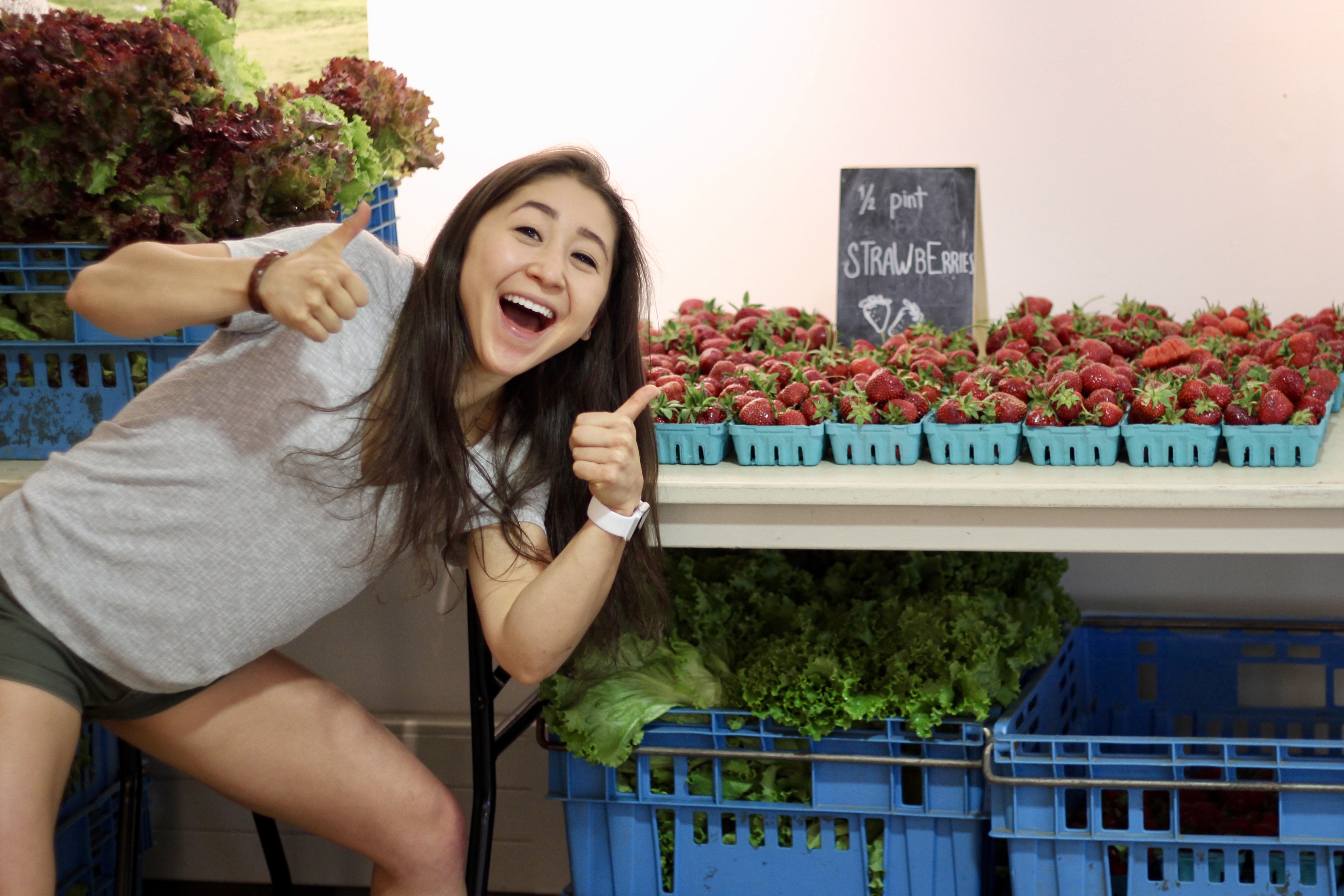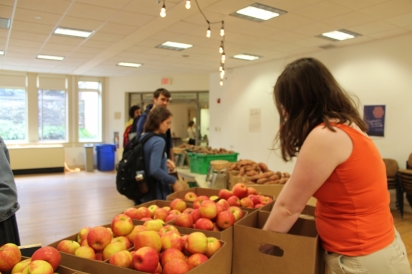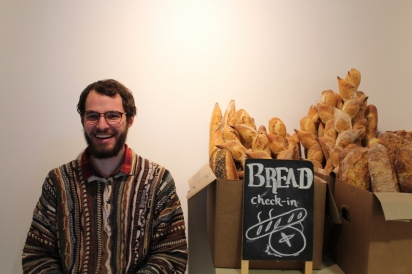Brown Market Shares Program: Bringing Fresh, Local Produce to College Hill
As you step through the doors of 80 Brown St. in Providence on a Thursday afternoon, the smells of freshly baked bread and ripe summer fruit waft through the air, perking your nose. The sometimes-rap, sometimes-bluegrass music tickles your eardrums. Into the entryway of Brown/RISD Hillel you can’t take more than 10 steps before being greeted by the kind smile of a market coordinator. This is Market Day for the Brown Market Shares Program.
Market Shares is in its 12th year on College Hill and Hillel has been its home base since the very first day. Throughout 36 seasons, Market Shares has grown into a large cooperative with a wide variety of locally grown and produced foods, but at its core the program has remained the same as when it started in 2006. It occupies the same physical space and its organizational structure has never been altered, including its seven coordinators, dozens of volunteers, 15 or so local farmers (from Rhode Island and Massachusetts who deliver weekly) and its hundreds of shareholders.
Shareholders include undergraduate students from both Brown and RISD, staff and faculty from both institutions, as well as local College Hill residents. Shareholders pay a base rate of $210 for 10 weeks of fresh local fruit and produce. Shareholders also have the opportunity to add other items such as eggs from Pat’s Pastured and mushrooms from RI Mushroom Company to their weekly shares for an additional fee. In order to further its accessibility, Market Shares offers lower-cost share option—roughly 35–45% of each season’s shareholders are subsidized.
Over the past decade the reach of Market Shares has grown immensely; last fall was the first season that Market Shares had to cap the number of shareholders. Who knew that college students would prefer mustard greens over instant ramen and radishes over boxed mac ’n’ cheese?
Market Shares’ impact extends far past the Providence community, too. Market Shares was the first program of its kind in the country and over the past 12 years the seven coordinators have helped other universities on the East Coast establish similar student-run market programs. During those years the program has truly become a part of Brown University’s identity and a reflection of the institution’s values.
Amanda Yan, the current Market Shares operations coordinator, recalls a moment during her first season as a volunteer that inspired her to take on a leadership position. That day, fresh cranberries from Fairland Farms in Norton, MA, were a Thanksgiving week specialty item. It was expected that the berries would come in individual bags but instead they came in bulk. Amanda spent her volunteer shift individually bagging 500 pounds of cranberries. Those little berries practically jumped out of her hands and scattered across the room. By the end of her shift the floor was littered with tart red pebbles. She expected the endless line of shareholders to be impatient and frustrated, but everyone was encouraging and kind.
“There are few places as welcoming and supportive as Market Shares,” she says. “Everyone I have met through the program—farmers, shareholders and volunteers alike—is unbelievably kind, understanding and passionate about our causes. This is now my fifth season volunteering for the program, and I plan to continue volunteering until I graduate.”
At the end of each season, shareholders receive a survey that asks them about the past season, their thoughts, experiences and suggestions for the future. A question on this survey reads, “How important were the following in your decision to join the Brown Market Shares Program?” Potential answers include cost, nutritional value of food, interest in sustainability, interest in supporting local farmers, interest in supporting the local economy. Across the board, shareholders note the last three—sustainability, interest in supporting local farmers, interest in supporting the local economy—as the primary reasons why they’ve chosen Market Shares for their weekly provisioning.
While there is no question covering the social aspects of being a member of a forward-thinking, enthusiastic and passionate community, another question asks, “Why is being a Market Shares shareholder important to you?”
An anonymous shareholder writes, “It has enabled me to eat healthier and better quality food than I can normally afford, which has greatly improved my quality of life. In short, it’s a true life saver, a wonderful program, and I am so very grateful to be a part of this fantastic community. Many thanks to Market Shares!”
It’s these eager shareholders who have allowed Market Shares to grow its community outreach and expand its numbers over the years. The energy in Hillel every week is nothing short of positive; everyone is happy to be there as supporters of Rhode Island’s local, sustainable food movement.
It’s undeniable that the Brown Market Shares Program has touched the lives of everyone who has been a part of it. Over the past 12 years, by making fresh, organic and local produce affordable and accessible, Market Shares has become an extremely impactful group on Brown University’s campus. We can only thank the original coordinating team that fought to start the first student-run CSA in the country, right here on College Hill.






